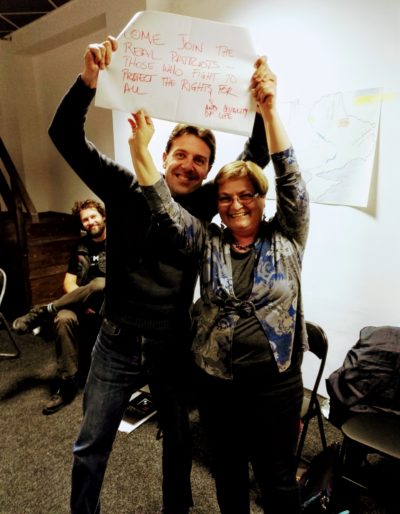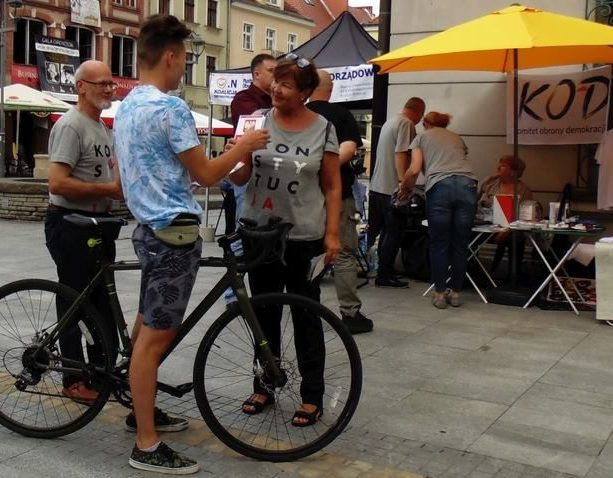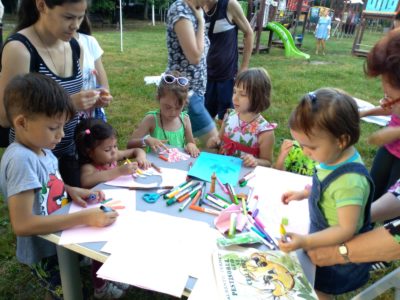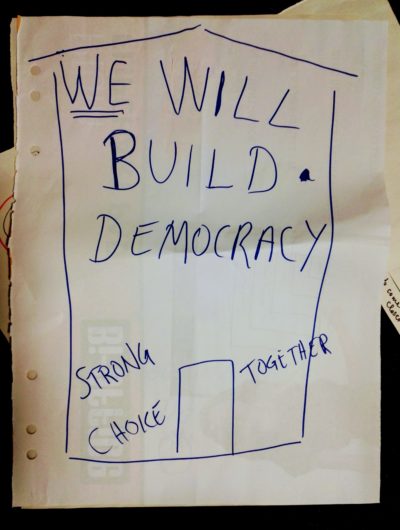Common questions about community organizing
What is community organizing?

Like anything, there are variations in community organizing practice, but people who define their work as “community organizers” typically employ a number of very similar tools in their work. For example, community organizing consistently prioritizes one-on-one, face-to-face outreach with local residents. This often takes the form of going door to door in a particular area or housing settlement. It also sometimes takes the form of seeking out people in places where they are known to gather, for example reaching out to unemployed people outside of job centers, or people of faith in their houses of worship.
This can be difficult and time-intensive work, but community organizers would agree that there is no shortcut around the face-to-face outreach piece of the organizing process.
Building local leadership
A fundamental goal of community organizing is to develop local leadership. Often organizers measure the progress of their work by the number of leaders involved in the campaign.
Community organizing rewards leadership styles that emphasize listening to others, as well as appreciating and encouraging the contributions of the many, not the few.
Leadership in a community organizing context often comes from unexpected places, and the role of an organizer is to cultivate leadership in people who themselves feel they have no agency, and who society does not immediately see as leaders.
Who is a community organizer?
 Community organizers, whether working as a volunteer or in a professional capacity, often emerge from communities from which the organizing is happening. This is important and should be encouraged as part of the leadership development process.
Community organizers, whether working as a volunteer or in a professional capacity, often emerge from communities from which the organizing is happening. This is important and should be encouraged as part of the leadership development process.
At the same time, good organizers are able to apply their skills in varied settings and build trusting and accountable relationships in communities not their own, even across intersecting lines of difference. For example, as part of a recent organizing project in the UK, an organizer of South Asian descent successfully organized people in majority white coal communities in the British Midlands.
In short, organizing is a craft that can and must be learned, and this requires a long term investment in training, mentorship, and living wage salaries for the organizing profession.
What is an organizing campaign?
 Good community organizing leads to campaigns that address issues identified by local residents during one-on-one outreach in the community.
Good community organizing leads to campaigns that address issues identified by local residents during one-on-one outreach in the community.
Members of the community conduct research to find out who has power to solve the issue they care most about, while also recruiting new people and teaching their members to take leadership roles. Eventually the community is ready to directly engage officials, speak to the media, and bring in even more people, including allies from outside the community.
In all of this, the community organizer continues to play an important role, but good organizers share leadership and demonstrate an awareness of the privilege they carry based on their institutional position, and their ability to shape the strategic direction of the campaign.
Organizing groups use different strategies and tactics – including putting pressure on the decision-makers when necessary – in order to generate collective power, to negotiate changes in public policy and social systems, and to shift the public narrative in support of equity and inclusion, and social, economic and environmental justice.
How are organizers building campaign capacity?

While organizing groups are rooted in localities, their issues are increasingly linked to a larger vision of the future – one committed to social justice and human rights in Europe. The capacity to act on this broader vision is “baked in” at every step of the organizing process through popular education (i.e. in one-on-ones, in group meetings, in trainings).
While community organizing is rightly associated with local, bottom-up change, Europe is seeing the growth of larger-scale organizing institutions that have the capacity to lead multi-year policy change campaigns at the local and national level – often in close partnership with specialized policy and advocacy organizations. For example, the Civil College Foundation in Hungary has 13 full-time staff, provides financial and mentoring support to 30 organizers in the field, and hosts a large-scale digital organizing program.
